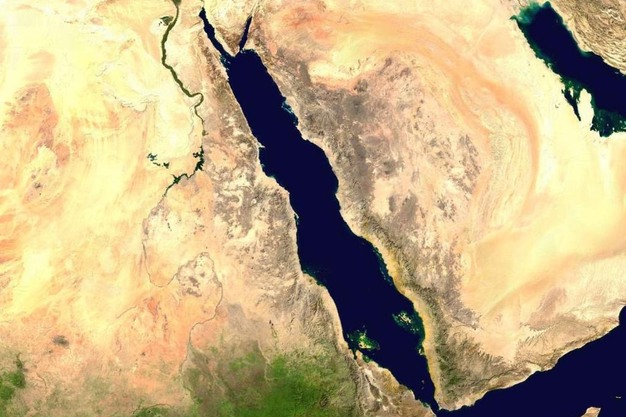Since October 2023, the crisis in the Red Sea, a facet of the war in Gaza and by extension in the Middle East at the height of the conflict, has severely disrupted international trade traffic. This important artery accounted for 30% of global container traffic, and its disruption has forced shipping companies to circumvent the African continent, doubling transit times and significantly increasing transport costs. In the fresh produce sector, the effect of the crisis has been tangible, as producers and exporters have been cut off from key markets, as fruit and vegetables cannot withstand long transit times or when prices on shelves become too prohibitive.
Final days for the crisis in the Red Sea?
Two years later, the crisis in the Red Sea, if defined by the absence of shipping lines, is still persistent, albeit less intense. Many global shipping companies are still absent from the Bab Al Mandab Strait, awaiting a reassuring resolution. On October 13, 2025, a peace agreement was signed to end the conflict in Gaza, including a provision for a permanent ceasefire. The agreement remains fragile but is being observed. Although Yemen’s Houthis are not part of the agreement, their attacks in the Red Sea should be halted.
 © Wikimedia
© Wikimedia
Stefano Iorini, general manager of Global Star Group, an international ordering company based in Saudi Arabia, shares a sense of relief coated with caution, given the fragility of the situation. He states, “The news of the ceasefire is a very positive step and gives hope that we may finally see stability returning to the region. It’s still very early, as the agreement was just signed, but even this first sign of peace is already lifting confidence across trade and logistics circles. Everyone is cautiously optimistic that calmer days are ahead. If the situation continues in this direction, it could pave the way for a full reopening of the Red Sea routes that are so vital for global shipping and for the fresh-produce industry in particular.”
Restoring direct sailing through the Red Sea can take up to six months
A return to normality for trade via Bab Al Mandab will not happen overnight. According to executives from two international shipping companies, a return to normal operations in the Red Sea is expected to take around six months. For logistics companies, Iorini says that the return of direct sailings will depend on the decisions of several parties, including shipping lines, insurance companies, and those involved in the conflict. He continues, “Some shipping lines have already restarted direct sailings from Europe to the Gulf and India, and that’s a very positive sign. Others will gradually follow as stability continues and insurance restrictions ease. If the current calm holds, we can expect most services to return to their regular schedules over the next few months.”
A source from a major shipping company confirms, following the signature of the peace agreement, “We will be monitoring developments, and I think that, for shipping companies, it will take up to six months to restore shipping schedules via the Red Sea.”
 © Global Star
© Global Star
“We should start to feel the difference very soon”
Even with the delayed effect, the announcement of the peace deal is a relief for fresh produce professionals in several regions around the world, from India to Egypt. A return to normal business, provided it happens in six months, will come too late for the upcoming season for Indian grape exporters or Egyptian citrus exporters, among the hardest hit in the fresh produce sector. However, it could come just in time for the peak fresh produce season in March 2026.
Iorini adds, “Overall, this means fresher arrivals, better quality, and more reliable planning for everyone in the supply chain. During the Red Sea disruptions, ships had to detour around Africa, adding many days to the journey and creating serious challenges for perishable goods. Now, as more carriers return to the Suez route, exporters from India and East Africa to Europe or the Gulf will recover roughly 10 to 14 days of transit time, a huge benefit for shelf life and product quality. From Egypt, the impact on Europe is smaller, since those routes were never heavily affected. However, shipments from Egypt to the Gulf, India, and Far East markets will now benefit from shorter transit times and smoother connections.”
“If the current positive momentum continues, we should start to feel the difference very soon. Direct routes are already being restored, and more will follow month by month. By the next quarter, we can expect operations to be largely back to pre-crisis conditions, step by step, but with steady progress. The industry is ready to turn the page and focus once again on what it does best: connecting growers and markets with the freshness and reliability consumers expect,” Iorini concludes.
For more information:
Stefano Iorini
Global Star Group
[email protected]
Source: The Plantations International Agroforestry Group of Companies
